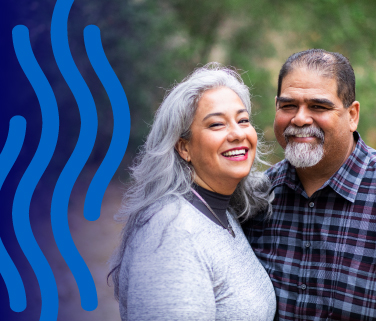Charting a new course for research in obesity, a disease affecting approximately a billion people worldwide, is no small undertaking. Striving to make an impact in this chronic disease that can lead to a variety of other health conditions, requires big thinking and seamless execution.
Fortunately, Amgen has a track record of taking on some of the world’s toughest diseases including cancer, cardiovascular disease and osteoporosis. The company has deep expertise in creating medicines for a wide variety of illnesses – and in executing clinical trials for patient populations of all sizes to assess the safety and efficacy of its medicines.
In the case of obesity, Amgen’s clinical trial program is rapidly accelerating. In fact, it’s shaping up to be one of the largest clinical trial programs in Amgen’s 45-year history.
The investigational medicine being studied for obesity and obesity-related conditions is called maridebart cafraglutide, or MariTide for short, and the Phase 3 clinical trial program is called MARITIME. The program is focused on exploring how safe and effective MariTide is as a potential treatment for obesity and obesity related diseases.
Here are some additional details on the MARITIME Phase 3 program:
- MARITIME-1 is a study for people living with overweight or obesity.
- MARITIME-2 is a study for people living with type 2 diabetes and overweight or obesity.
- We’re exploring additional Phase 3 studies across multiple indications including cardiovascular disease (also called heart disease), heart failure, kidney disease and obstructive sleep apnea.
To keep up to date with recruitment status, visit the MARITIME website.

MariTide is an antibody-peptide conjugate being studied as a monthly or even less frequent injection. This investigational medicine blocks the glucose-dependent insulinotropic polypeptide (GIP) receptor which is a hormone pathway involved in insulin signaling and fat storage. At the same time, MariTide activates the glucagon-like peptide-1 (GLP-1) receptor.
Tina Harris, executive director, Clinical Program Operations at Amgen, who is overseeing MARITIME, said the complexity, size and scope of these trials is mostly related to the sheer volume of investigational sites, and people required to participate in the clinical trials. And because obesity is connected to so many other serious health conditions, the expanse of the MARITIME Phase 3 program will be sizable in both scope and in the number of participants.
For more context, Phase 3 clinical trials typically enroll anywhere between 300 to 3,000 people, depending on the disease state being targeted by the medicines, according to the U.S. Food and Drug Administration.
In the biotech and pharmaceutical industry, successfully clearing Phase 3 is considered “the gold standard of evidence by which global regulatory bodies assess benefit, risk and approvability for the intended patient population,” according to Narimon Honarpour, senior vice president, Global Development at Amgen.
To get to Phase 3, however, key hurdles must be cleared in Phase 1 and Phase 2.
Learn more about the phases of a clinical trial in this video featuring Amgen’s Narimon Honarpour.
In the course of the phases of a clinical trial, Phase 1 is where medicines are evaluated in humans for the first time and measure safety and tolerability and are conducted in healthy volunteers. It’s usually the smallest group of people, enrolling anywhere between 10 to 100 participants.
If the drug clears Phase 1, Phase 2 tracks dosage, safety and efficacy in a larger pool of patients. The participant size of this phase will usually involve several hundred participants, depending on the size of patient populations that have the disease.
After Phase 3 – the largest participant pool in a clinical trial, the fourth phase, according to Honarpour, is where the medicines’ safety is monitored further and additional information about treatment benefit is collected in the real world.
Susan Sweeney, executive vice president of Obesity and Related Conditions, said obesity affects all parts of the world and people of all different populations and that the challenge is significant.
“Whether in our own lives or the lives of friends and family, we have all experienced someone living with obesity or an obesity-related condition because it’s associated with everything from cardiovascular disease and diabetes to inflammatory diseases and even some types of cancers,” she said. “Everything we do at Amgen must be with the patient in mind and understanding their path.”
For more information on the Phase 3 clinical program, visit the MARITIME website here.





